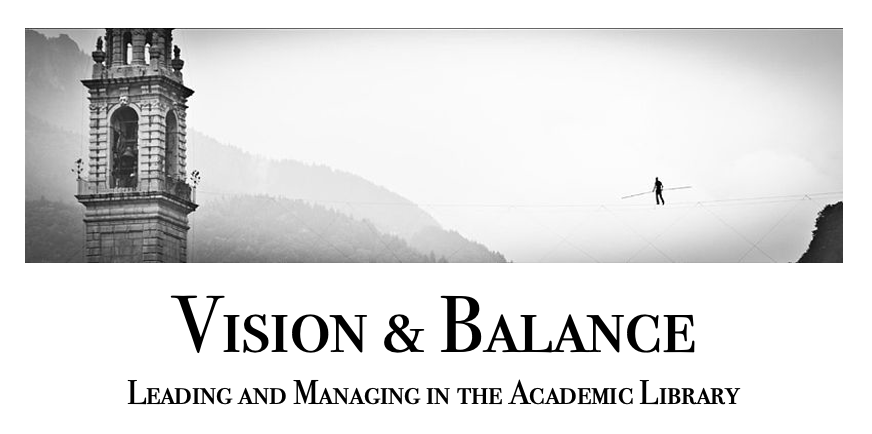I’m going to close out the year with a lesson I learned many years ago from a column by Stanley Fish; I believe it was in the Chronicle of Higher Education (which, is, by the way, an essential read for any academic library administrator).
Fish made the seemingly odd observation that when it comes to staff and faculty morale, in some ways the best position an administrator can be in is to have absolutely no money to work with. Why? Because when you have no money, you can basically say “yes” to everyone – because saying “yes” is purely hypothetical and involves no difficult choices about resource allocation.
So, for example: if your travel budget is entirely exhausted, and someone comes into your office and says “It would be so great if I could present my paper at that
conference in Berlin,” you can say “Oh man, that really would be great. You wrote an excellent paper and the attendees at that conference would really benefit from hearing it and being able to ask you questions. I really wish I could send you.”
Or if you’ve just sustained a 15% cut to your personnel budget and one of your managers comes to you and says “I really wish I could give my staff a 5% salary increase across the board. They’re underpaid as it is and they’re doing such great work,” you can say “Absolutely. A raise would be well deserved and it would really help them out. I would love to do that.”
When you have no money, you can say "yes" to everyone – because saying "yes" is hypothetical.
In both of the above situations, the conversation is easy, because no difficult choices have to be made. You can express your sincere support, and while no one is getting the material things they want, they at least go away from the conversation knowing that you’re there for them.
When do things get tough? When you have some money to work with. When your travel budget is mostly depleted but still has enough left in it to send one person to a conference, but you have three equally deserving people who want to go, or when you’re given a small increase to your personnel budget and told to distribute it as pay increases to only your highest performers – and you have to decide who those are and how much they get. It’s these situations, when you have to make difficult decisions about allocating limited resources between deserving people and programs, that lead inevitably to hurt feelings and difficult questions about fairness and equity.
But those difficult decisions and tough conversations are an essential part of the leader’s work. And as we’ll discuss when we come back from the holiday break, taking a leader’s pay entails the obligation to do a leader’s work.
And with that, I’m going to sign off for the next two weeks. I wish all of you the happiest of holiday breaks, and we’ll pick up the conversation again on January 7!
The (Mixed) Blessing of Austerity
It may seem counterintuitive, but when you have no money at all, you can safely express support for every proposal and initiative. It's when you have _some_ money that things get really tough.
